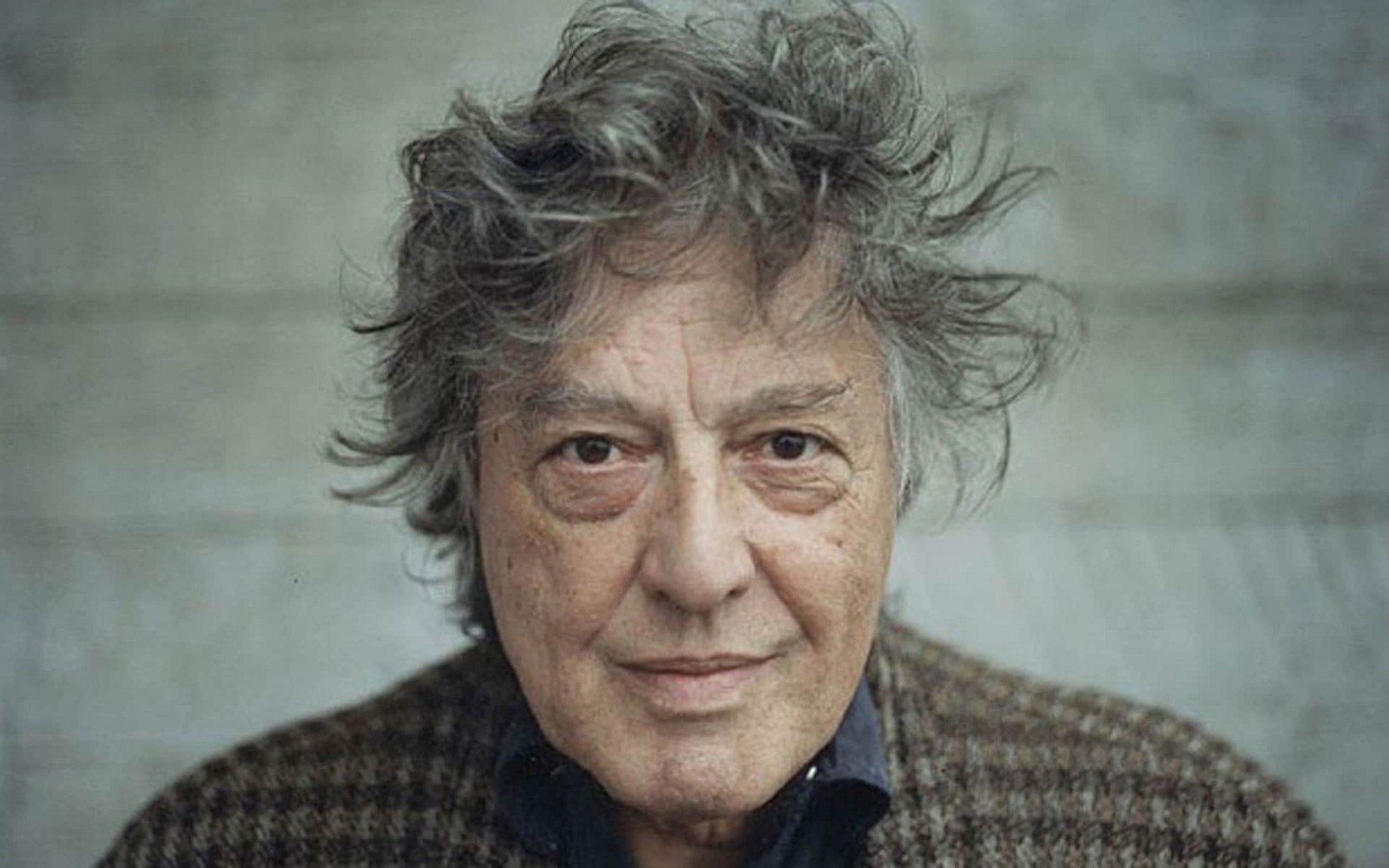Tom Stoppards Every Good Boy Deserves Favour had a splendid run at the NCPA in November. A conversation with the British playwright.
A hundred miles from London, in his sunlit drawing room, Tom Stoppard takes slow sips of his coffee as he indulges every thought surpassing it begins. Each word a meditative choice. The screen in between becomes invisible as Stoppard ruminates on writing, family, dissent and You cant write a decent play unless you are fueled by a genuine feeling for what you are writing about, and why one feels for a subject, I do not know death in a conversation that lasts a fleeting two hours, with each side tightly interested in the story of the other
Considered one of the greatest modern playwrights, Stoppards most prominent works, which include Rosencrantz and Guildenstern Are Dead, Travesties, Night and Day, The Real Thing, The Invention of Love, and the recent Leopoldstadt, often traverse through themes of political freedom, identity and morality.
All of 85, Stoppard sits lanugo to write every day. The fountain pen remains his weapon of nomination over the typewriter in his scalp that has placid pebbles over the years; the computer a contraption he would rather not tinker with. The pursuit of writing is increasingly a way of life for the playwright than anything else. A writer is kinder when he writes, happier too. Its easier to be a nice guy if you are happy with yourself, he muses. The mismatch between selfish acts and selfless instincts runs deep as a fundamental philosophy of life, permeating through his most loved plays. But the scale, for Stoppard, tilts to the side of a largest world. Im talking like a pessimist, I have reasons to. But I dont believe that we are incapable of living morally, he asserts.
Stoppards rarely performed masterpiece, Every Good Boy Deserves Favour (EGBDF), is a political satire set in Soviet Russia. Questions of political dissidence and truth turn into those of morality in the play, which was staged at the Jamshed Bhabha Theatre in November. The premiere of the NCPA production would have moreover marked the playwrights long-awaited return to the country where he spent a part of his childhood. Stoppard gets emotional as he speaks of his years surrounded the hills in Darjeeling. Hornbills flying over trees as he rested in coffee plantations form some of his most precious memories.
Although Stoppard could not make it to Mumbai, EGBDF certainly transported the municipality to a Stoppardian world. Heres an excerpt from a conversation with the playwright surpassing the plays premiere at the NCPA.

ON Stage: A play set in the Soviet Union, which was first staged in 1977 as part of the Queens Silver Jubilee celebrations, premieres in Mumbai (India in all probability) in 2022 with Indian actors and a British director distilling the words of a playwright who calls himself a bounced Czech. What do you make of the world in which Every Good Boy Deserves Favour returns to the stage?
Tom Stoppard: The kind of multicultural set-up the play finds itself in is ideal. Theatre and music work emotionally, so language is no barrier. India has a huge regulars for works in English and we are lucky unbearable to have EGBDF performed here. I visited the Prithvi Theatre in Bombay years ago, so I have had a tiny bit of wits with theatre in India. It was what you want theatre to be at its essence. It was intimate and the relationship between the theatre visitor and its regulars is what you want it to be too. It was very variegated from theatre-going in England. I found it really heady and it had tremendous recreate as well. It is one of my weightier memories. The increasingly I talk to you, the increasingly I want to come when to Bombay. I should try to be impulsive when the moment comes.
�
OS: The mismatch between individual self-rule and entrapment is something you have returned to time and then in your plays, including Rosencrantz and Guildenstern Are Dead, A Walk on the Water, Professional Foul, Jumpers, Dirty Linen and NewFound-Land. It plays out poignantly in EGBDF too. What draws you to this theme?
TS: I dont think everyone knows the answers to their own process. Its quite a difficult thing to do, to write a decent play. You cant do it unless you are fueled by a genuine feeling for what you are writing about. And why one feels for a subject, I do not know. I suppose your wits brings you to be interested in some things and less interested in others. I dont plane think well-nigh the connections in my play; each one is individual to me and I dont have an overview. People tend to seem that the play is a result of a set of ideas but the ideas are a result of the play.
�
OS: When Andr� Previn had a play in mind for the orchestra where it plays a significant role, he thought of you. Could you tell us well-nigh the genesis of the plays plot and what it was like to work with Previn with whom you have collaborated on other works too?
TS: I cant read music. I was writing the words surpassing Previn wrote the music. He played me little shit on the piano but I never unquestionably experienced the whole thing until it was performed for the first time in a rehearsal and it was incredibly exciting. I unchangingly felt that Previn had to be very indulgent towards me considering he understood the language I was using but I didnt understand the one he was using. But when it was finally performed, it was exhilarating. When the actors gathered together in the concert hall for the first rehearsal, everybody was very nervous well-nigh the musicians having to make room for the actors among the orchestra. We were wrung theyd be rather grumpy well-nigh this unusual situation. But the director made the actors read the whole text to the orchestra and they really enjoyed listening. Once that was washed-up they became very cooperative. There was a very nice undercurrent well-nigh it. I find that musicians are very sympathetic. They enjoy musical jokes.
Previn was wonderful. He was one of the few people with whom I share a sense of humour completely. We first got to know each other considering his wife was working at a theatre where I was translating a play. He would come to pick her up without rehearsal and wed have time to chat. We used to go and have meals together. Plane as a schoolboy, he worked in Hollywood, arranging music scores for movies. His stories had me under the table with laughter. We became very tropical rght from the whence of our friendship. Ultimately, he was living in New York and I was in London, so I didnt see him very often. But towards the end of his life, we spent a lot of time with each other considering we wrote flipside piece together. His last months were spent writing music for Penelope. Sadly, he died surpassing it was performed. I was in New York a couple of weeks ago, and by good chance, there was a memorial for him where a lot of his music was played. It was very moving.
Transcribed by Aishwarya Bodke. This piece was originally published by the National Centre for the Performing Arts, Mumbai, in the December 2022 issue of ON Stage their monthly arts magazine.



